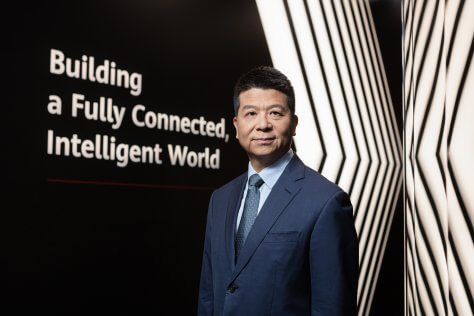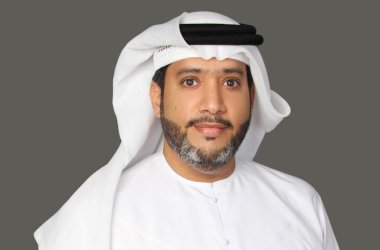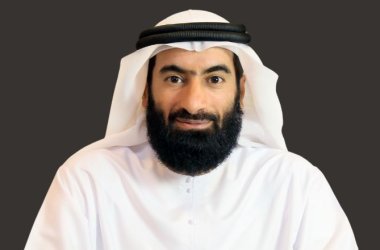CNME Editor Mark Forker is attending the inaugural LEAP 2022, which is being held in Riyadh this week – and he was on-hand to hear more about Huawei’s ambitious cloud strategy in the Kingdom, which is ultimately designed to foster and cultivate greater digital transformation across the entire region.

In his keynote presentation, Huawei’s rotating chairman Guo Ping, outlined how the global ICT behemoth plans to build a new cloud region in Saudi Arabia.
LEAP is being held for the very first time and has attracted participation from some of the world’s biggest players in the field of IT and technology, as well as a number of exciting new startups and seasoned venture capitalists.
The conference is seen by many industry analysts as proof that Saudi Arabia is serious about becoming a hub of technology and innovation as it attempts to diversify its economy.
In a compelling keynote presentation, Guo Ping said that Huawei’s decision to build a new cloud region only serves to reinforce their commitment to helping the Saudi leadership achieve the goals of their Saudi Vision 2030 transformation program – and said that the establishment of Huawei Cloud would provide a great boost to businesses and government entities in terms of enabling them with access to more robust and secure cloud services from Huawei.
Guo noted Saudi Arabia has already confirmed plans to become one of the world’s top 20 tech economies and in turn diversify its national industries.
“The new cloud region will create new social and economic value in Saudi Arabia and the wider Middle East in line with their digital development strategies,” said Png.
He reiterated how digital is the future and that a key pillar in digitalization programs is embedded in the cloud.
“Going digital is now a key global consensus. Over the past three years alone, many global enterprises have fully embraced digitalization, with the top 10% of these organizations growing their revenue as much as five times faster than those who have not embraced digitalization. Huawei’s own customers, partners, and developers can rely on our services to help industries in the region go digital,” said Ping.
Huawei have been in the Saudi market since 2004, and Ping documented how the company has helped serve some of their biggest operators in terms of overcoming challenges with connectivity in rural and underserved areas.
“For the past 17 years, the company has assured stable Saudi telecom networks during major national events such as the Hajj that demands high quality networks – and Huawei has also worked with industry leaders like Aramco on intelligent oil field operations,” said Ping.
He concluded his presentation by highlighting how Huawei was fully committed to helping the KSA achieve its aspirations to be one of the first countries in the world to have a large-scale AI model.
“We have also pledged to cultivate talent for the regional AI industry. In Saudi Arabia, Huawei will support the Kingdom’s effort to become one of the first countries to have a large-scale AI model – and we firmly believe this will help the country build more intelligent platforms in domains like Arabic-language identification, pharmaceutical R&D, disease detection, and many others,” said Ping.





